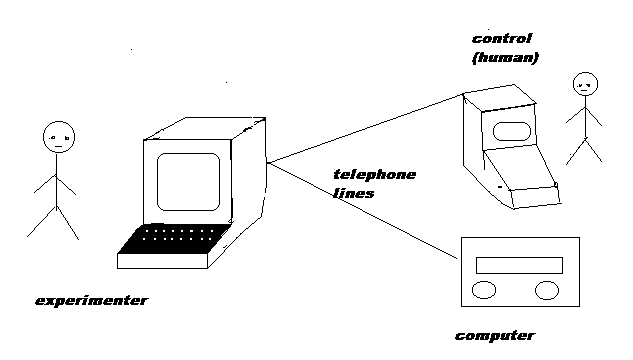Chapter 1
![]()
Chapter 1
There are as many definitions of Artificial Intelligence (AI) as there are researchers.For the purposes of this course we will use the following definitions out of many available in the literature:
- Artificial Intelligence is the attempt to build computational models of cognitive processes, or to put it another way; in AI the aim is to make computers perform tasks that would be considered intelligent if done by a human being.
- B.Raphael has suggested:
AI is a collective name for problems which we do not yet know how to solve properly by computer. As soon as convincing success is attained in any particular domain, that domain is transformed into an established category of computer science.Eg. pattern recognition,expert systems.
![]()
Apart from the fact that it is enormous fun, people study AI :AI is of interest to engineers, computer scientists as well as to psychologits linguists and even to philosophers. One might expect AI to include a definition of INTELLIGENCE. If so, one may get disappointed.It is no easier for an AI researcher or practitioner to give a definition of intelligence than for a biologist to give a definition of LIFE. Both are concepts with a complex CONTEXTUAL meaning in everyday conversation, but neither yields a precise or scientific definition.
- Because they want to extend the range of things computers can do. These people are interested in technological applications of AI research.
The Turing test is an ideal version of a behavioural test for intelligence first offered by the British mathematician and one of the founders of AI, Alan Turing.

Experimenter is seated at a terminal connected to another human being or the control and to a computer. The objective is to decide which is which by asking suitable questions of each. Both will do all they can to fool the experimenter. For example, the computer might pretend to be bad at arithmetic. If you are unable to separate man from machine then according to TURING, the computer is intelligent. However, we are not meant to take the TURING TEST too literally. As it is really another way of saying that intelligence is judged on the basis of behaviour.
1.3 Mental and Physical Machines
Two concepts, which are not new, will be defined next. First a physical machine. Computers can be termed as physical machines.They are made of electronic components that one can touch, and they execute millions of instructions in a second, faultlessly.Computers are only of interest to AI people because they offer a physical basis for mental machines (i.e. computer software) which are much more interesting and complex. They can also be creative, imaginative and emotional- in short, they more or less behave like the human mind.
People in AI try to build computer programs that reason in the same way as humans, but without going through the same electrical and chemical processes in the brain.
Artificial Intelligence is founded on an analogy between the human and the computer:
Computer Human Mental Machines Computer Programs(Software) Human Mind Physical Machines Computer Hardware Human brain
But it is not concerned with the anology between the computer's hardware and the brain (which is rather weak). It is concerned only with the anology between particular computer programs and the human mind,
i.e., between the two mental machines (which is much stronger).However, the question remains: Can two closely analogous mental machines be implemented in terms of two dissimilar, physical machines? We are going to see in this course that to a certain extent they can.
![]()
Let us do a quick survey of what computers can do by programming them, for a number of tasks listed below.
Task Remarks *Playing chess Best program has ground master rating. *Proving mathematical theorems Simple exercises in group theory, topology, geometry, mechanics etc. *Expert Systems Virtually applicable to all domains. **Writing computer programs Program desired is specified by, e.g. giving typical Input/Output sequence. A few simple programs have been automatically written.
**Understanding written language (English) It is possible to have a convicing conversation about very limited area. **Visual perception Computer can understand simple sentences,in a limited vocabulary about a very limited domain.
* : Intellectual tasks
** : Everyday tasks
Does this mean that everyday tasks require more intelligence ?
No , but they are unconscious.
This is by no means an EXHAUSTIVE LIST.But gives some feel of the state-of-the-art and the focus of attention.
| This page is maintained by: | Mehmet R.TOLUN tolun@ceng.metu.edu.tr |
| Last updated at: |